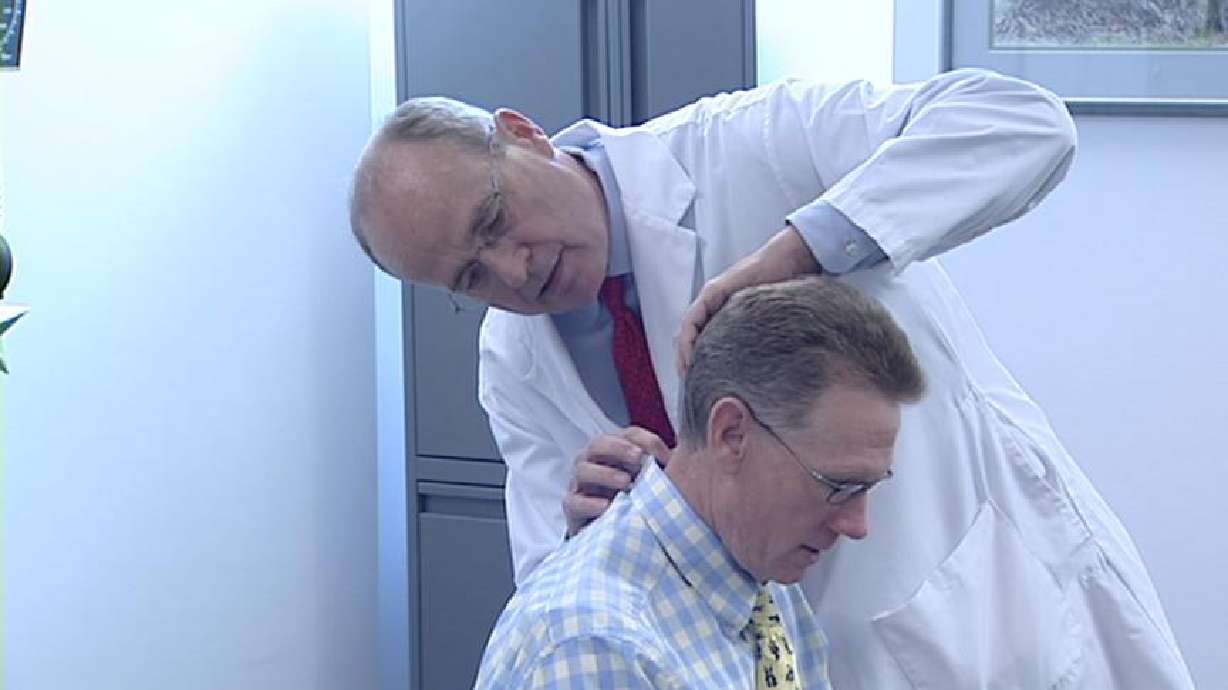Estimated read time: 2-3 minutes
This archived news story is available only for your personal, non-commercial use. Information in the story may be outdated or superseded by additional information. Reading or replaying the story in its archived form does not constitute a republication of the story.
Ed Yeates Reporting Three months ago, two Utah patients were among the first in the country to get an experimental implant designed to end the unrelenting pain of their migraines. Now, twelve weeks later, they're back in clinic for what is considered a benchmark exam.
As we reported in May, Mark Robinson and Delynn Tabile enrolled in an FDA clinical trial for an implant at Lifetree Clinical Research in Salt Lake. The trial is double blinded, so neither knew for sure whether they were getting this activated device designed to block migraines or a unit that simply sends a placebo impulse to the brain.

Today was a significant 12 week checkup, even though the two still don't know what they've really got. Mark reports about a 70 percent improvement. Before, he was in a worst case scenario?
Mark Robinson: "Right up to a suicidal kind of feeling. And in 12 weeks, I have had nothing approaching that."
Delynn is calling her transformation a 100 percent change.
Delynn Tabile, Migraine Victim: "I mean, I haven't opened the Loritabs since two weeks after the surgery. Havent even touched it, and for me, it's like, this is so cool."

Delynn feels so good, she bought bright colored fabrics to make herself a skirt.
Delynn Tabile: "I haven't bought happy fabric in years. It's been years. I was ready to make me a big, happy, flowing skirt."
Mark Robinson: "I'm back on a bicycle several times a week, planning a 100 miler this Saturday, God willing (chuckles.)"
Delynn Tabile: "It is such a difference because I feel I'm back to the point where I cut my hair."
For Delynn, it's not only no significant pain, but no sensitivity to light and sound as well.
Again, we really can't draw any specific conclusions yet, but or at least two people, it does look promising.
Lynn Webster, M.D., Lifetree Clinical Research Center: "One out of ten Americans will have a migraine and ten percent of them may have intractable migraines, so it's a huge number."
Delynn and Mark will find out next spring - when the code is broken - whether or not they got the real McKoy 12 weeks ago.









